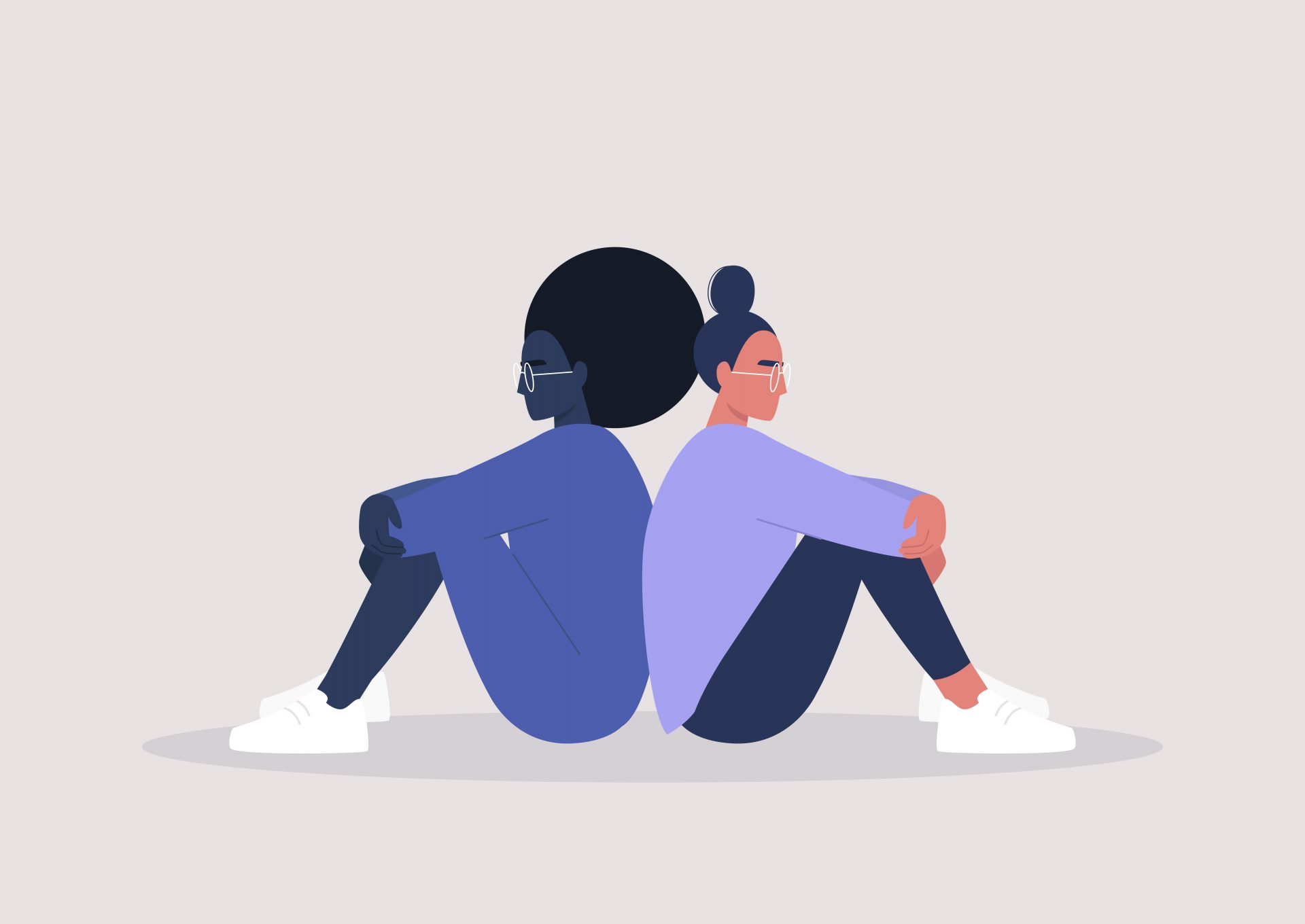Written by Siobhan Smith
From our ‘shadow side’ to relational blueprints: psychologists explain why we find some people unaccountably irritating and how to deal with it.
“What she was saying was perfectly nice, but I remember looking at her messages in our group chat and feeling irritation and anger bubbling up inside me.”
Carly*, aged 29, from Essex, is part of a tight-knit friendship group. In 2018, one of her best friends introduced Jade* to the group and assured everyone they would all love her. First, she joined them for dinner, then a night out, then – the Holy Grail of acceptance –she was added to the WhatsApp chat.
In many ways, Jade should have been someone Carly got on with. But “I found her quite try-hard, while everyone else seemed to think she was genuine and funny,” Carly tells Stylist. There was just something about Jade that Carly found unaccountably annoying without being able to put her finger on exactly why.
It’s a feeling most of us can relate to. An irritating neighbour who, on paper, actually seems like a lovely person; a friend’s new partner who everyone loves yet makes you recoil; someone in your extended friendship group who grates on you for no apparent reason. “Why are people so annoying?” you might find yourself muttering, as innocuous messages from a seemingly friendly colleague come through on your work Slack chat.
It’s a common experience but it can still be a perplexing one, especially if you seem to be alone in your feelings towards one particular person.
Finding the perfect fit
According to clinical psychologist Gemma Harris, it’s all to do with the fact that each of us is wired differently in terms of who we click with and why.
“Cognitive analytic therapy suggests that we each have a relational blueprint; a template for how to operate in relationships,” Harris tells Stylist. “We can think of this as essentially walking around like a jigsaw piece, seeking out pieces (people or situations) that fit our template.”
This template is developed based on early childhood experiences as well as adult relationships and is what guides us to connect with people who fit our needs and expectations and avoid people who make us feel ‘unsafe.’
“Sometimes a person jars with our needs, values and boundaries,” says Harris.
Lucy*, aged 27, describes finding her best friend’s boyfriend, Lewis*, immediately irritating, despite the fact he was going out with someone she was so close to.
“He has no ability to engage in a conversation that doesn’t interest him, which is a sure-fire way to annoy me,” she says, explaining that she and her friend have drifted apart because of it. “I find it hard to hang out because every time she brings something up about him, it puts me in an irrationally bad mood,” says Lucy.
In this case, Lewis and Lucy seem to have very different personality types – two opposing jigsaw pieces that will not fit together.
Rubbing off on each other
Finding someone annoying can also come down to something called ‘affective presence’, a concept stemming from a body of research in psychology that suggests some people naturally make others feel relaxed, while others make people bristle – no matter what they do.
According to this theory, affective presence is an inbuilt feature in someone’s personality. “It’s the vibe a person elicits in others,” says Harris.
Unlike ‘state-level emotional contagion’, where another person’s mood or emotions can rub off on people – “anxiety is an example of this”, says Harris – ‘trait-level affective presence’ elicits a constant feeling in others (good or bad) even when the person’s emotions vary.
Our ‘shadow side’
However, just to confuse things, it’s not only points of difference that can trigger annoyance. The same can happen if you recognise a trait of yourself in them – albeit one you don’t like.
The ‘shadow side’ is a theory coined by renowned psychotherapist Carl Jung, most well-known for his theory on the collective unconscious.
“This refers to a part of us we don’t like to acknowledge, because we are ashamed of it, or wish we didn’t have it,” explains business psychologist Dannielle Haig.
“When we see it in other people, it triggers us and causes us to dislike the person who is essentially showing us our ‘shadow’,” she says. “It can really help you to understand yourself more when you acknowledge these unconscious responses to other people.”
Just too nice
However, it’s far more jarring when someone is completely inoffensive, yet we still feel ourselves reacting badly to them. And it’s not uncommon that someone being ‘too nice’ can trigger a negative reaction in us.
Rose*, aged 26, has a colleague she’s only ever met virtually because of the pandemic and describes her as being “sickly sweet”.
“She is just so nice to everyone all the time,” Rose tells Stylist, with audible inverted commas around the nice. “I don’t get it. I think I’m a decent person but nobody can be that OTT with it all the time and be genuine.” Rose pauses, and adds: “I’m aware that this makes me sound like a bitch.”
But, most likely, we’ve all been there. And, psychologically, it makes sense. Someone being overly nice can often make us suspicious and question the sincerity of the actions, making it hard to connect on a deeper level with them.
However, psychologist Emma Kenny explains that, if you find yourself feeling annoyed by someone ‘too nice’ who everyone else likes, it might stem from one of two things.
“It could be that you’re very insightful,” she suggests. “So, while everybody else takes an individual at surface level, you may be able to pick out their underlying true colours. Or, you could be jealous. People don’t like to admit it but it can be really irritating when somebody is popular and funny and connects with everybody.”
Accepting our differences
One thing is for certain, it’s near impossible to get through life without coming across people who evoke a reaction or annoyance in us, even if we can’t put our finger on why.
As Rebecca Daniels and Sarah Brammal, transformation coaches and founders of The Coaching Catalysts, point out, being the only one who finds another person annoying can feel lonely and unsettling.
“We can begin to question our judgment of others, our instincts and even feel a sense of insecurity about ourselves,” says Daniels.
To deal with this, Brammal says it’s fundamental to accept we are all different and everyone can’t possibly like each other. “Acceptance is so important because when we come to terms with our individuality we can start to truly accept people as they are, and respect their quirks and uniqueness.”
“We have the control to avoid situations and people which may trigger us if we choose to,” says Brammal. “But in the long term, it’s advisable to explore why a specific situation or person has triggered you and address those issues.”
Images: Getty
Source: Read Full Article




